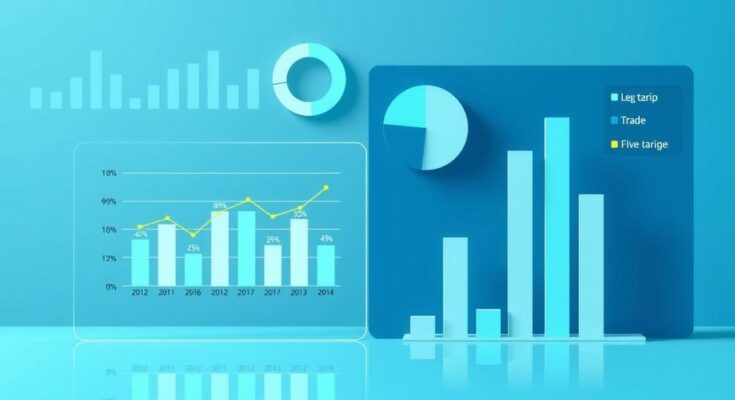President Trump announced a 20% tariff on Jordan, termed as “Liberation Day” tariffs, as part of a strategy to reform U.S. trade policy. The tariffs are based on reciprocal rates and aim to create fairer trade practices, with new rates affecting multiple countries and significant plans for tariffs on imports from Canada and Mexico.
On Wednesday, United States President Donald Trump announced a significant imposition of a 20 percent tariff on Jordan. He described this measure as “Liberation Day” tariffs during his announcement titled “Make America Wealthy Again,” which is part of a larger initiative to transform U.S. trade policy. Trump asserted that this initiative marks a long-awaited occasion for American economic reform.
The President explained that the United States would introduce “discounted reciprocal tariffs” on its trading partners, depending on the various protective barriers and taxes imposed on American goods. He referred to this announcement as the most extensive tariff proclamation he has made to date and aimed at establishing more equitable trade practices.
Tariffs will be computed at a “discounted” rate, representing approximately half of the currently imposed tariffs and non-monetary barriers from other countries. Trump characterized these new rates as fundamentally fair, reflecting the total cost incurred by U.S. goods in each partner country.
In his presentation, Trump provided a chart that disclosed projected tariff rates for various nations. Products from China would attract a 34 percent tax, while those from the European Union would incur a 20 percent tax. Furthermore, Vietnamese goods would face a 46 percent tax, Japanese imports a 24 percent tax, and those from India a 26 percent tax, exceeding his previously suggested flat 20 percent tariff during the campaign.
Additionally, Trump indicated that every nation would face a baseline tariff of 10 percent, which was reflected in the rates provided. He also discussed the potential implementation of a 25 percent tariff on most imports from Canada and Mexico, a plan initially postponed for a month but may be enforced this week. Furthermore, a 25 percent tariff on all imported cars was announced to take effect at midnight, demonstrating a robust trade strategy from his administration.
In summary, President Trump’s recent announcement of a 20 percent tariff on Jordan, referred to as “Liberation Day” tariffs, is part of a wider strategy to restructure U.S. trade policies. This initiative is characterized by discounted reciprocal tariffs, aimed at creating fairer trading conditions. The President disclosed specific tariffs on various countries, ensuring a focus on maintaining equitable trade practices.
Original Source: en.royanews.tv




